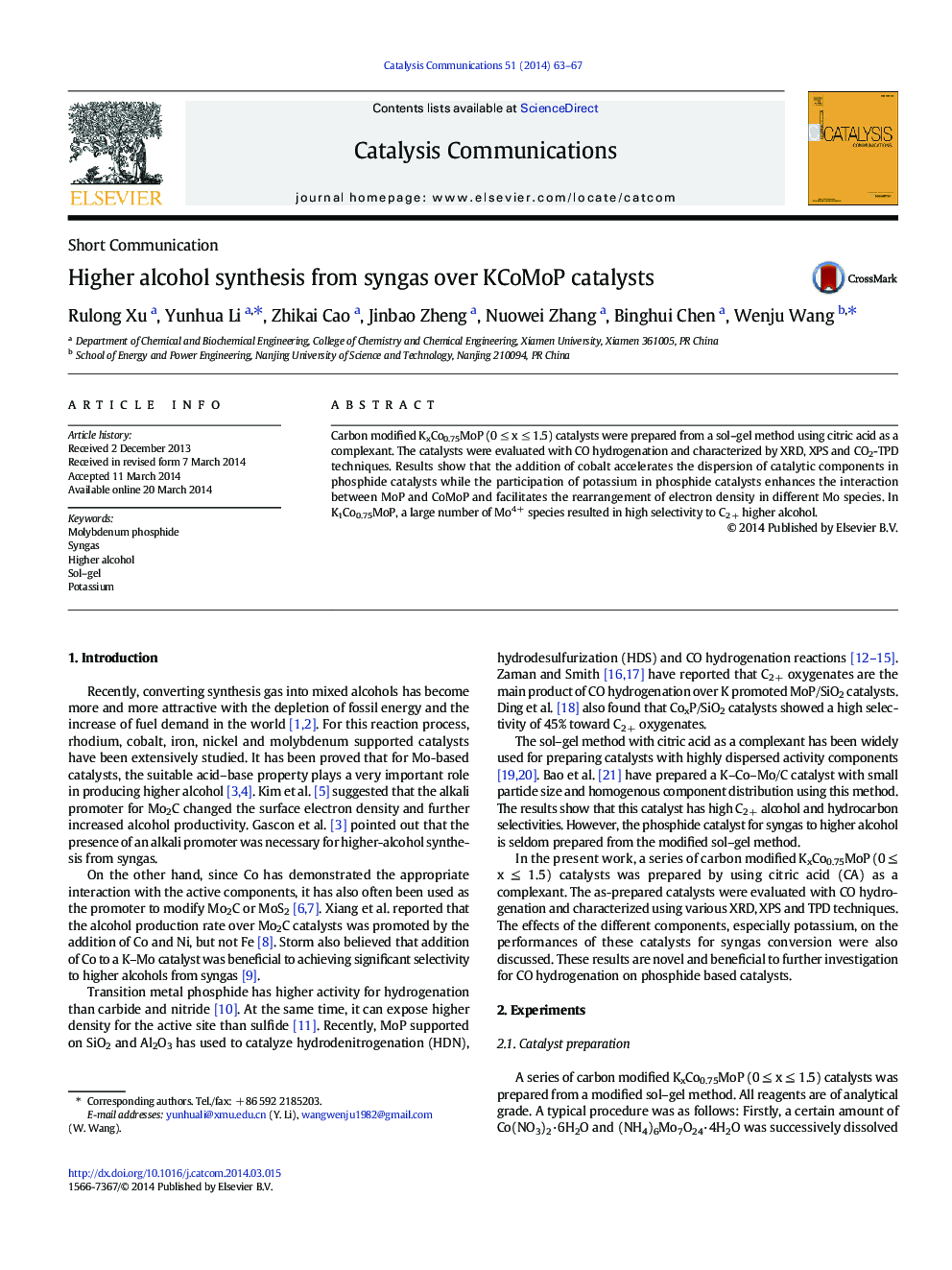| Article ID | Journal | Published Year | Pages | File Type |
|---|---|---|---|---|
| 49609 | Catalysis Communications | 2014 | 5 Pages |
•Potassium enhances the interaction between MoP and CoMoP.•Potassium facilitates the rearrangement of electron density in phosphide catalysts.•The rearrangement of electron density results in the generation of Mo4 + species.•A large number of Mo4 + species lead to high selectivity to C2 + higher alcohol.•The appropriate catalyst is KCo0.75MoP for synthesizing higher alcohols.
Carbon modified KxCo0.75MoP (0 ≤ x ≤ 1.5) catalysts were prepared from a sol–gel method using citric acid as a complexant. The catalysts were evaluated with CO hydrogenation and characterized by XRD, XPS and CO2-TPD techniques. Results show that the addition of cobalt accelerates the dispersion of catalytic components in phosphide catalysts while the participation of potassium in phosphide catalysts enhances the interaction between MoP and CoMoP and facilitates the rearrangement of electron density in different Mo species. In K1Co0.75MoP, a large number of Mo4 + species resulted in high selectivity to C2 + higher alcohol.
Graphical abstractIn K0Co0MoP for CO hydrogenation to higher alcohols, the addition of only Co can improve phosphide transformation from MoP to CoMoP phase and accelerate the dispersion of catalytic components in phosphide catalysts. On the other hand, further participation of potassium in phosphide catalysts increases the alkali of the catalyst, enhances the interaction between MoP and CoMoP and facilitates the rearrangement of electron density in different Mo species. In this case, a large number of Mo4 + species resulted in high selectivity to C2 + higher alcohol. These results will help the study of phosphide catalysts involving acid–base performance to a great extent.Figure optionsDownload full-size imageDownload as PowerPoint slide
